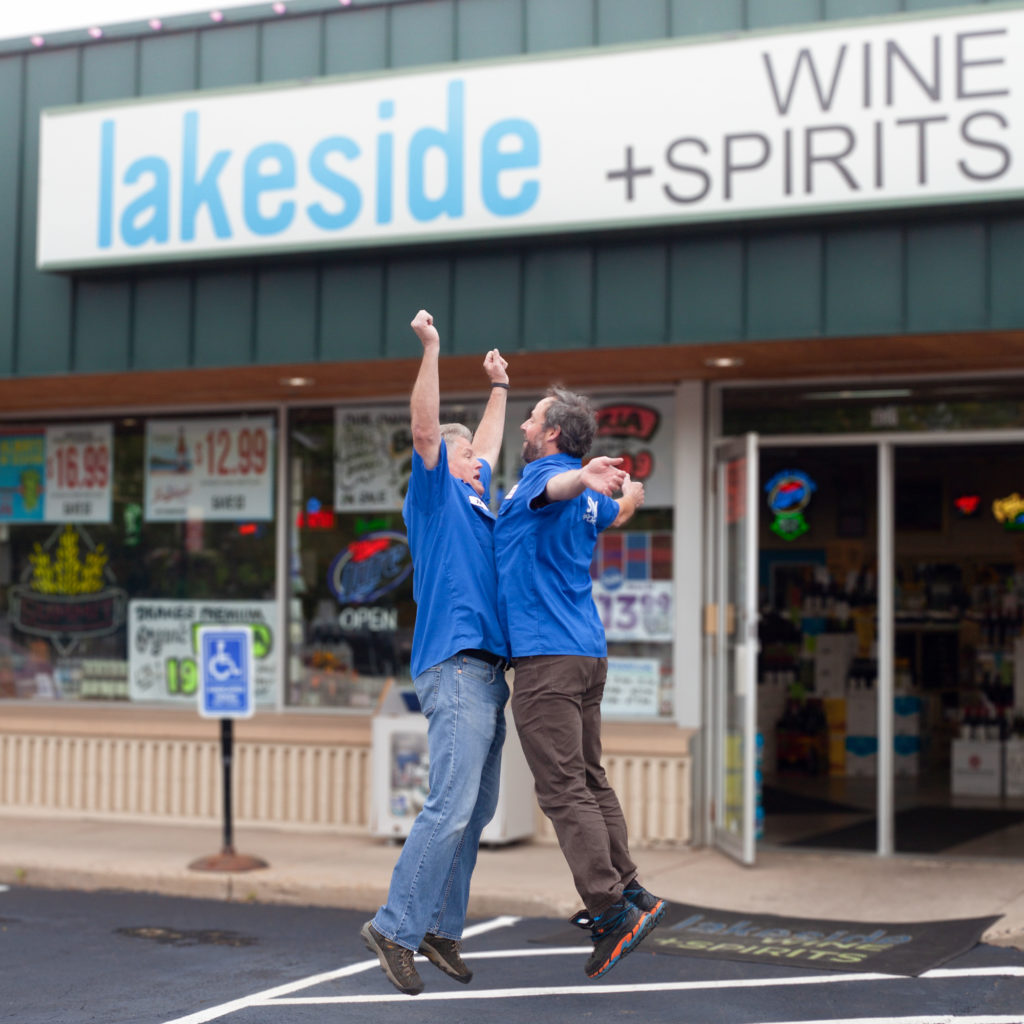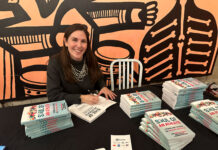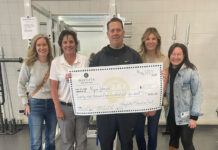Much has changed in the last 10 years, especially when it comes to retail. We all know Amazon is greatly shaping the scope of commerce. What we may not be as aware of is how our buying decisions may alter our local retail landscape in the not so distant future.
LocalTies had an opportunity to have a frank discussion with Pat and Bryan Keeler, brothers who grew up working at and now running Lakeside Wine + Spirits in Long Lake and Lowry Hill Liquors in Minneapolis. Within the off-sale liquor industry, big box stores selling liquor and decisions made by local politicians are creating challenges for small local businesses. But in the end, it is these same small businesses that are keeping our communities strong and connected.
THE BEGINNING
When their father, Jimmy Keeler, bought Lowry Hill Liquors in Minneapolis in 1985, Pat helped one day as a bagger. Pat decided he didn’t want to continue after that one stint, but in 1993 he came back, “And I said, ‘Hey!’ Working here will be okay!’ Two years later in 1995, Jimmy came into the store, announced he bought Lakeside Wine + Spirits in Long Lake and said he needed Pat to run the new location. “That’s the way the old man operated, pretty fast, pretty smooth. It was fun!” Eighteen years Pat’s junior, Bryan recalls when he was around five years old running around the liquor store while Pat worked. “We pushed beers around and were paid in suckers,” Bryan laughs. Jimmy also owned an insurance business and a sixplex apartment building next door to Lowry Hill Liquors. Bryan has fond memories of their dad collecting quarters out of the laundry machines and using it to pay him and an older brother for sweeping and doing other odd jobs. “That was the allure between ages five to ten of going (to the apartments and store),” Bryan says.

THE PERKS & THE EXPERIENCE
Visiting vineyards is one way the Keelers learn about their wines. Pat explained. “Going to all the vineyards, meeting all the winemakers and those who sell the wine, you learn a lot of things. A lot of different walks of life get together. It’s a lot of fun. We know how the wines are made, where it was made and who made it. For example, Jim Bernau started Willamette Valley Vineyards in 1975. Family-owned vineyard, family still working around it. It’s nice to see these family-run companies.”
THE CHALLENGES
“There have been moments when you get a little frightened,” Bryan explains. The housing market crash in 2007-08 forced the business to make decisions regarding their inventory. “We had a ton of high-end wine and then the markets started dropping and these bottles weren’t going anywhere.” $50 bottles were selling for $10-20, $100 bottles for $40. “You don’t want to give it away, but you’re also dealing with a perishable item.”
Another hurdle occured in the last 3 years when both stores had to deal with road construction and road closures. “It’s amazing how road construction can change a small business in a city like Long Lake,” Bryan states. “Fewer customers, smaller margins to be competitive, increased advertising, and a lot of time.” The construction for Lakeside has finished, but Lowry Hill still has more to come with 35W North still not having an exit to 94W and Hennepin Ave. Bryan laughs, “you can’t make up some of the challenges that we have seen with construction, competition and laws.” Pat shakes his head and smiles, “and we’re just crazy enough to deal with it.”
NATIONAL BIG BOX STORES VS. SMALL LOCAL SHOPS
“Surdyk’s and Haskells are also well-known family stores around here,” explains Pat. “Good stores, good people – each multiple generations. Most of the liquor stores around town are run by sons or grandsons. It seems like there is nobody new that started a new store, it’s always generational in the inner ring of Minneapolis or St. Paul.”
Bryan elaborates, “The first local big box liquor store was in Sam’s, then Costco in St Louis Park. Total Wine + Spirits came in a few years ago. To a small, family-owned business, the tactics of big box stores can seem predatory in my opinion. Historically, they appear to drop the prices until a smaller store is run out of town, then bring the prices back up. One small store can expect to lose 50% of their revenue, and hopefully it’ll gradually grow back in five years. However, many can’t pay themselves and have to shut the doors. It’s a shame but once the local liquor stores are out of business, we’ll likely see the big box store prices going back up. That’s what has happened in other states.”
LOCAL ECONOMY & CHANGES IN THE LAW
“When Sunday liquor sales was proposed ten years ago in the State of Minnesota, I thought about how I like to go to the bars on Sundays,” Bryan says. “I will spend $20 at the bar but if I go to the liquor store to purchase something for the day, I’m going to spend only $10. For the local economy, it’s better as a tax benefit if I go to the bar. I emailed all of our legislators about this and only one got back to me. I asked about the research on Sunday liquor sales. He told me that I don’t have to keep the store open on Sundays, but that’s not the question. The question is, “what’s the research?” It didn’t appear there was any research on how it would benefit the local economy. In reality now, it’s over $10 million short of Sunday projected sales. It didn’t work out. And regarding the lawmakers response about being free to close on Sundays – it’s a fine line to walk between having to pay more to staff your business one extra day a week and being convenient for your customers. We choose to be convenient and competitive, even though it is hitting our pocket book.”
“Ironically, I can’t have a liquor distributor and delivery in on a Sunday,” says Pat. “Only liquor store employees can be working. Bryan adds, “Understandably, the distributors want to take the day off and the rest of the industry is prohibited by law for working with liquor stores on a Sunday.”
GIVING BACK & BEING AN IMPORTANT PART OF THE COMMUNITY
“I worry that the big box stores don’t care about the community and keeping their money in the community,” Bryan shares. “The small local businesses aren’t making the big money and building mansions. We’re sharing it with our employees and giving back to the community.”
Lakeside Wine + Spirits and Lowry Hill Liquors are doing this in their own unique way. Pat started the annual Taste of Long Lake event to benefit multiple charities such as research for ALS and breast cancer. Going into its tenth year, Bryan has grown the Taste of Long Lake into the must-attend fall event to taste beer, wine, spirits and local food. “We try to create events where everyone in the community can take part and we can give the proceeds back,” says Pat. “We run the fundraisers, flip the costs and the rest of the money from it goes to charities straight up.”
Pat began the Lakeside Charity Golf Tournament as well to raise money for charities such as the Ronald McDonald House. After more than ten years, Bryan has taken over the organizing of this popular springtime get together which has grown from 40 golfers to a full 128. Each year at the tournament, the Keelers enlist someone to grow their hair out to have it cut and donated to Locks of Love. Pat explains, “I regularly grow my hair out to 14” and then go to nothing at the tournament. I have people commenting on my lack of hair throughout the day but it is worth it.”
Bryan found his own charitable efforts making their way into Lakeside Wine + Spirits and Lowry Hill Liquor fundraising events as well. Many moons ago, when Bryan was pursuing teaching, he was invited to student teach in math at a high school in Tanzania for a month. While there, a church asked Bryan to build a kindergarten. He formed a 501C3 and when thinking of a name for the foundation, Bryan’s mom asked him to describe what it was like for kids in Tanzania to learn at the time. Bryan said, “Eight students sitting around a kerosene lamp. They wanted to learn so bad, they would sit around the lamp studying until the final bell when they had to go to bed.” Thus the foundation name – 8 to a Lamp. The foundation has since built a two room, one office kindergarten. Future plans include adding a kitchen on to the school and building a nearby technical school. Now Bryan’s charity is also frequently featured during store fundraisers.
There are other ways Lakeside Wine + Spirits and Lowry Hill Liquors give back to the community. They regularly provide donations such as wine tastings to other local charitable events and fundraisers. And they have begun an annual ‘Giving Thanks’ initiative each November, where a portion of their sales during the entire month go to local nonprofits. Last November, they donated over $10,000. This past November their proceeds benefitted local firefighters, military, schools and suicide prevention causes.
“Our family stores like to help out the community but we also try to encourage people to do business with people who do business with you,” says Pat. “I bought an 8th of a cow from a guy who does our repairs. It’s great to know I can call him up for pork chops and burgers. Small business in the western metro is alive and well, but it takes people to be cognizant and support the local economy.” The brothers gave their final bit of wisdom on how to be good to their community. “Just take up a cause,” Pat says. “Just be nice to people, do something for somebody else.” Bryan adds. “Smile.”







